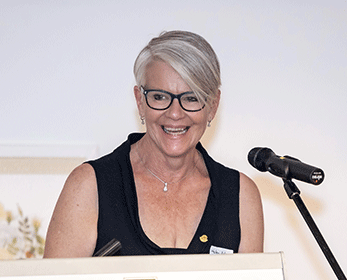New Edith Cowan University (ECU) research has revealed a lack of diverse family structures represented in Australian children's picture books.
The study, led by Associate Professor Helen Adam, critically analysed a sample of 90 picture books from shortlisted and award-winning books in Australia from 2019 and 2020.
It found that while there was some positive progress in the inclusion of diverse family structures, LGBTIQA+, step, blended, and foster families are almost entirely absent, potentially leading children from these family backgrounds to feel excluded or invisible.
Associate Professor Adam has called for educators to move beyond relying solely on award-winning books and seek out texts that more accurately reflect the diverse fabric of Australian society.
"It is little wonder that award-listed books are often a source for book selectors, and this study is not a criticism of those books," she said.
"They are high quality and well-written, often containing valuable messages and themes that resonate with children.
"However, assuming that award-listed books are the best or only books to purchase can narrow the representation of diverse families," she said.
Family representation: Key to inclusion
Associate Professor Adam stressed the importance of inclusive family representation in early literacy.
"It's vital that all children can see families like their own in the books they read," she said.
"Seeing themselves in books plays a crucial role in how children perceive their place in the world and contributes to their emotional well-being."
Positive progress toward inclusion of non-traditional family structures was noted. Of the 34 books depicting families 41% featured sole-parent families and a few showcased multigenerational households, however many family types were absent.
"The omission of LGBTIQA+, step, blended, and foster families is concerning," Associate Professor Adam said.
"This invisibility can send harmful messages to children from these families and perpetuate the idea that only traditional family structures are valued in society."
"It can also have profound effects on their engagement with literature, which is a key factor in developing strong literacy and language skills."
The power of positive representation
Associate Professor Adam stressed that inclusive representation in children's literature benefits all children, not just those from underrepresented family types.
"It's just as important for children from traditional families to see diverse family structures. Exposure to different family models fosters empathy, understanding, and a broader view of the world," she said.
The study also referenced research from the United States which demonstrated that adding LGBTIQA+ books to classroom libraries led to measurable improvements in student reading assessment scores.
"Diverse books are not just about representation—they directly support better educational outcomes," Associate Professor Adam said.
A call for change in book selection
Associate Professor Adam said it is understandable that award-winning books were often seen as the gold standard for quality, but this study had shown that limiting book selection to only these books may not offer the diversity our students need.
"By actively seeking out books that represent the diversity of families in society, we can create more inclusive and supportive learning environments for all children," she said.
Associate Professor Helen Adam and Dr Lynette Vernon's next study is investigating how Australian families select books for their children. They are currently calling for participants. If you're interested in taking part or would like to find out more, email h.adam@ecu.edu.au.
The study 'Where are the diverse families in Australian Children's Literature? Impacts and consideration for language and literacy in the early years' was published in the journal Education Sciences.

 A new ECU study has critically analysed a sample of 90 picture books from shortlisted and award-winning books.
A new ECU study has critically analysed a sample of 90 picture books from shortlisted and award-winning books.



